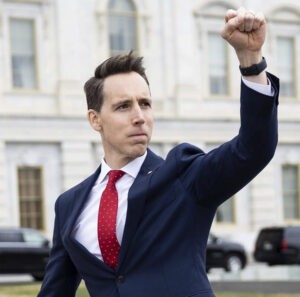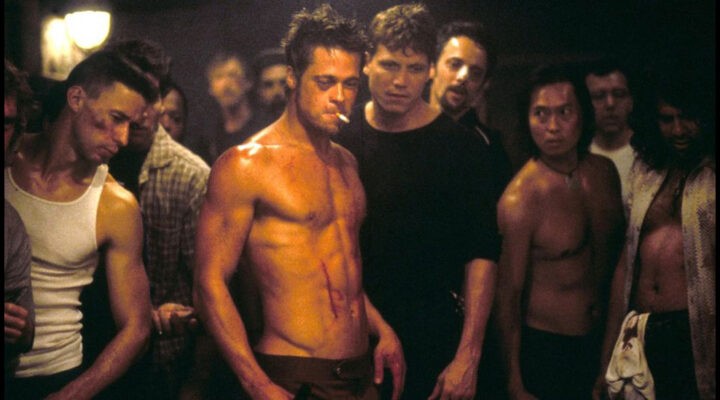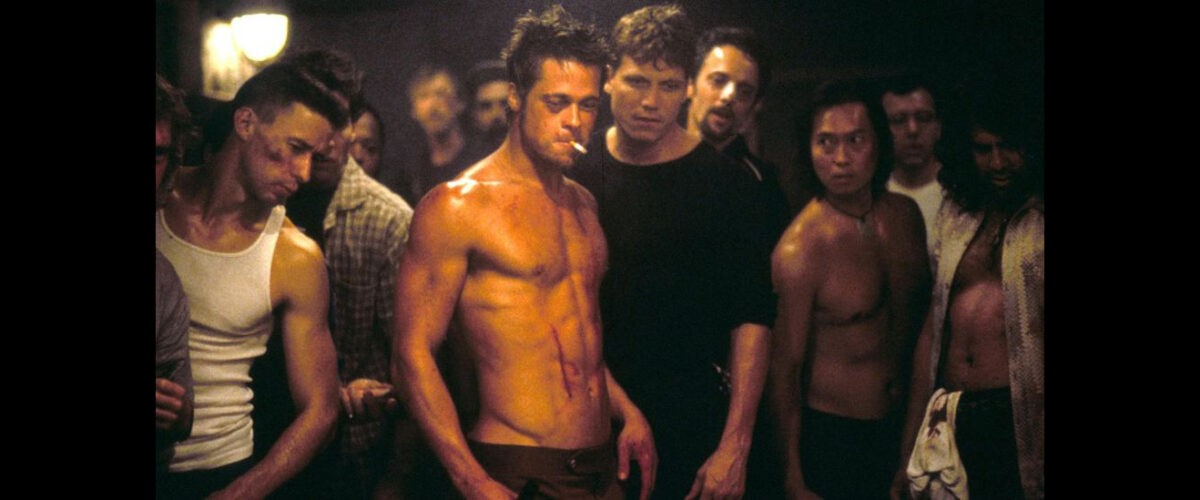Any Bible-memorizing kid still remembers Romans 3:23 — “For all have sinned and fallen short of the glory of God.” The guilt, branded into our consciousness, never leaves us, but there’s something nagging about the “all.”
All have sinned but not all are held accountable — especially when it comes to toxic masculinity.
I have been shamed by toxic masculinity — my own. What man hasn’t? In the beginning God created Adam. Adam exercised power by naming all species of the earth. Then after eating the forbidden fruit, Adam played the victim: “The woman whom you gave to be with me, she gave me fruit from the tree, and I ate.”
Here is the Janus-faced man — power and victimization. This story snapshots a long history of toxic masculinity.
Toxic masculinity from pastors and politicians
When searching for the source of today’s toxic masculinity, look to the pulpits of evangelical churches. Toxic masculinity pours forth from evangelical pulpits like toxic smoke from a chemical plant.
“Toxic masculinity pours forth from evangelical pulpits like toxic smoke from a chemical plant.”
Hiding behind words like “submission,” “obedience” and “complementarianism,” evangelical pastors spew toxic maleness across the land.
Christian leaders speak of “man fail” and the “pussified man” in derogatory terms. The implication is that too many men are unable to embrace the responsibilities of real men. The real man trope organizes against the domination of women. There’s a feminized spirituality in the churches, a feminized attitude in the culture. There’s a sense that the nation has been feminized.
The words “power” and “control” match with the male DNA. Books on masculine Christianity put the emphasis on assertiveness, boldness, being proactive. Passivity, vulnerability, respect — these are not considered manly terms among many evangelicals.
Bestselling author John Eldredge writes about boys playing aggressive war games. “Little boys yearn to know they are powerful, they are dangerous, (and) they are someone to be reckoned with. … Aggression is part of the masculine design; we are hardwired for it.”
Eldredge argues that our “feminized” society degrades and berates men for not being men. “Where are the real men?” is the battle cry. Eldredge believes we are asking boys to be women. He says we have gender confusion and this leads to the speculation for why there are gay men.
This toxic masculinity spreads from pastors to politicians.

Sen. Josh Hawley (R-Mo.) gestures toward a crowd of supporters of President Donald Trump gathered outside the U.S. Capitol to protest the certification of President-elect Joe Biden’s electoral college victory Jan. 6, 2021 at the US Capitol in Washington, DC. Some demonstrators later breached security and stormed the Capitol. (Francis Chung/E&E News and Politico via AP Images)
Sen. Josh Hawley, R-Mo., and a star of the New Right, has made masculinity a signature issue. In a recent speech at the National Conservatism Conference, for example, Hawley argued that the progressive left is trying to “deconstruct” the American man.
Politicians and evangelical preachers “use a theatrical repertoire of tactics to compose working-class masculinity and the feminized nation as vulnerable and needing protection,” according to Katie Oliviero in Vulnerability Politics: The Uses and Abuses of Precarity in Political Debate. “We are shown a nationalist masculinity script that constructs males as both exposed and invulnerable, at risk and hostile — a double, seemingly contradictory performance that capitalizes on both sides of the paradox to maximize political affect.”
Toxic masculinity at evangelical schools
Evangelical churches and schools are enablers of toxic masculinity. This is seen clearly in how they handle sexual assault claims.
A recent but all-too-prevalent headline caught my attention: “They went to Bible college to deepen their faith, then they were sexually assaulted — and blamed for it.”
What turns the world of power upside down where women are sexually assaulted by men with physical power and then are accused of having power over men by seducing them or leading them on to act in such ways?
Issues of power always are at work in sexuality. When a female student at an evangelical college is sexually assaulted, the system protects the male but suspects the woman. She is the one with the almost supernatural power, and the boy is subject to her wiles and temptations. The female student gets cast as the “loose woman” of Proverbs with her loose words.
Almost incomprehensibly, the male has no responsibility in this scenario. Instead of this being about sexual assault, it is moved entirely from the realm of the human, bodily realities to inanimate, amoral objects like clothing, makeup, loudness and flirting. Yet one does not put the inanimate on trial.
“When a female student at an evangelical college is sexually assaulted, the system protects the male but suspects the woman.”
The objectification of sexual assault being caused by inanimate objects unmasks the absurdity of male toxicity. The glaring contradiction in the realm of sexual assault is that the image of the strong, powerful, authoritative male disappears when he is accused. The male now assumes what would normally be considered a feminized role — weak, abject, submissive to authority.
Theologically, this is the male attempt to recreate a perfect Eden, a state of innocence. Susan Trollinger, English professor at the University of Dayton, notes “the necessity within this version of masculinity for innocence. The position of the innocent subject is essential. …. This is all about never having to stare history in the face. I think they trade on the subject position of the victim that circulates in the discourses that challenge white male hegemony — you can’t blame the victim. So, if they are victims then they can’t be blamed no matter what the facts are.”
The end result: invulnerable innocence and no accountability or responsibility. This is the male’s perfect world untarnished by the rhetoric of a feminized culture of abuse.
Evangelicals wish, in Yoder’s terms to “control the handles of history.” This includes revising history to make it a justification for how males have always acted. A white-washed history, however, is a toxic history.
No longer in charge as the male assumed he was during the assault, he now pretends to be a victim. He was distracted, driven temporarily insane by the most exotic clothing, most alluring perfume, the seductive wiles of the more powerful, more dominant female student. She has to be blamed because she rendered the male helpless to her charms.
A major reason that defendants in sexual assault cases insist on blaming the woman’s clothing as the cause of sexual assault is that it works. For example, a judge in Quincy, Ill., who found an 18-year-old man guilty of sexually assaulting a 16-year-old girl has thrown out the conviction and said the months the young man spent in jail was punishment enough. The judge indicated that teenage drinking and females swimming in their underwear were factors in his decision.
The illusion turns the world of power upside down. After the woman tells the story of sexual assault, the interrogator (usually a college administrator) suggests that it was the woman who had all the power. Her story has to be challenged in order to get to the truth. The result is a Janus-faced masculinity of power and victimization. The powerful male “having his way” with the weak woman is transformed into the weak male having no power to resist the powerful woman. The powerless woman is now the power player.
“The powerful male ‘having his way’ with the weak woman is transformed into the weak male having no power to resist the powerful woman.”
Again, Proverbs chapter 7 paints the picture for us: “With much seductive speech she persuades him; with her smooth talk she compels him. Right away he follows her, and goes like an ox to the slaughter, or bounds like a stag towards the trap until an arrow pierces its entrails. He is like a bird rushing into a snare, not knowing that it will cost him his life.”
“All the responsibilities are on the girls to be pure,” says Anna Schutte, who graduated from Moody Bible College in 2020. “You know, if a guy has a porn addiction and a sex addiction, you should pray for him. But if a girl gets assaulted, it’s her fault.”
This ties back to evangelical colleges promoting a courtship culture that is carried out under strict supervision. “The self-policing that courtship culture requires, however, is not egalitarian. Responsibility falls disproportionately to women, who are taught to protect their ‘purity’ and to never ‘tempt’ their brothers in Christ to ‘stumble’ with immodest behavior,” journalist Kathryn Joyce wrote in Quiverfull: Inside the Christian Patriarchy Movement. “The lack of men’s responsibility or culpability for their own actions and the acceptance of male ‘urges’ as irresistible forces of nature is the understructure of Christian modesty movements and their secular counterpart.”
Toxic masculinity and male hegemony
Whether the subject is sexual assault, abortion, prostitution or marriage, there’s likely a toxic masculinity driving the agenda. From the dawn of humanity, the arc of justice has bent toward the males of the species. Maleness undergirds inadequate responses to sexual issues. Terms pile up at the door of accountability: Male hegemony. Dominance. Primacy. Authority. Mastery. Control.
The hegemony of white supremacy has nothing over the hegemony of maleness.
“Whether the subject is sexual assault, abortion, prostitution or marriage, there’s likely a toxic masculinity driving the agenda.”
A corrective has long been needed as the women of the world “groan under the oppression.” The advent of feminism and the #MeToo movement gave hope that God had heard the groaning of women and would take notice of them and provide them with their exodus.
America’s attention-sucking, bullying males, however, mounted a counterattack. Women’s rights, voices, equality and power now face a blitzkrieg from that segment of our culture that one rhetorical scholar has labeled “Amerikkka” — a renewed toxic masculinity. It has poisoned the well of civilization.
Toxic masculinity and abortion
Changing male toxicity can change not only the conversations, but the lives of women and men. For example, it is almost impossible to have a conversation about abortion because the two sides are more dug in than World War I troops.
If the abortion conversation included the sexual behavior of men, would there be different outcomes in relation to abortion? Abortion conversations that start with male sexual practices might indeed lead to different outcomes. Instead of emotive tropes like “baby killers,” we might be talking about sexual integrity and mutual respect.
The weakness of the argument for male dominance of women lies in this inability to hold men accountable in matters of sex. I am suggesting that we are not going deep enough in our discussions of sexuality when we fail to include male identity, male toxicity and male domination.
“Abortion conversations that start with male sexual practices might indeed lead to different outcomes.”
Abortion violates the strict father metaphor, which is a key part of evangelical culture. A pregnant teenager having an abortion has disobeyed her father and should be punished. Since the father is the one who dictates right and wrong, there must be an absolute right and wrong, and the categories must be absolute.
If you still wonder why we are in such a mess religiously and politically, check out our alleged debates about abortion. When the word “abortion” hits the floor, the bombs start exploding, the missiles firing, the recriminations and condemnations blaring. As Charles Taylor argued in A Secular Age, two sets of people living in glass houses throwing huger rocks at one another advisably sums up the abortion conversation.
Toxic masculinity and homosexuality
A second area of sexuality that hides beyond toxic masculinity is homosexuality. George Lakoff says this is a matter of male identity. The heteronormative image feels threatened by homosexuality. Toxic masculinity raises its ugly head again.
Lakoff argues that hiding in the shadows, once again, is the archetypal conservative trope, the strict father family, and there can be no gays in a strict father family. The role of masculinity and the gender difference are crucial. Evangelicals condemn gay marriage, but the issue is not marriage. The issue is male identity.
The strict father hypermasculine identity is written all over the evangelical movement. Undergirding the masculine toxicity is the patriarchy movement, which teaches that men and women have separate, “complementarian” roles.
“Evangelicals have created God in the image of the strict father trope.”
Evangelicals have created God in the image of the strict father trope. God says, “Obey my commandments and go to heaven; disobey and go to hell.” The strict father God demands authority, obedience, discipline and punishment — a mirror image of the strict father evangelical. Nothing can be allowed to violate the strict father image.
Toxic masculinity and an enabling church
This “Christian” defense has done much to shape our secular culture’s attitudes toward homosexuality, abortion and sexual assault well beyond the realm of religion.
Rebecca W. Poe Hays and Nicholas R. Werse’s article, “Evangelicals and the Film ‘Fight Club’: A Cultural Comparison of Masculine Ideology,” makes the comparison explicit. Hays and Werse document that some evangelicals have identified with the film Fight Club as a reaction to what they perceive as the growing “feminization” of the culture and the church. The advocacy of hypermasculinity is a key to evangelical church growth.
 Hays and Werse argue that Fight Club and masculine Christianity employ similar strategies to define masculinity by associating it with images of physicality, power and control and contrasting it with a caricature of “man fail.”
Hays and Werse argue that Fight Club and masculine Christianity employ similar strategies to define masculinity by associating it with images of physicality, power and control and contrasting it with a caricature of “man fail.”
The “traditional” masculine characteristics and the “traditional” gender roles promoted in evangelical churches are the incubators of toxic masculinity. Using alleged literal readings of the Bible, evangelical churches provide the theological backing for muscular male Christian dominance. Men are encouraged to fight back and reclaim the culture and their masculinity.
This toxic masculinity has made a roaring comeback as a reaction to feminism, women’s rights and the #MeToo movement. Men, especially white men, are able to imagine themselves as victims of a political tragedy centered around the loss of real America to a feminized power structure. The illusion that males are victims hides white masculinity’s central role in structuring society.
Claire Sisco King calls this function “abject hegemony.” It secures a privileged position of power for white masculinity by reveling in violence and humiliation as proof of white masculinity’s marginalization. Playing the victim and the perpetrator allows privileged white males to escape accountability for sexual misconduct and make life about male precarity rather than vulnerability and responsibility. The propaganda of toxic masculinity still dominates the land.

Rodney Kennedy
Rodney W. Kennedy currently serves as interim pastor of Emmanuel Freiden Federated Church in Schenectady, N.Y., and as preaching instructor Palmer Theological Seminary. He is the author of nine books, including the newly released The Immaculate Mistake, about how evangelical Christians gave birth to Donald Trump.
Related articles:
Toxic masculinity, 24-hour news and complacency fed the Jan. 6 riots | Opinion by John Jay Alvaro
Gillette’s ad campaign gets ‘toxic masculinity’ right. Churches should follow suit | Opinion by Alan Rudnick
SBC leader says APA guidelines on ‘toxic masculinity’ do not square with Scripture
I lived in the culture of ‘The Rise and Fall of Mars Hill,’ and there’s one part of the story that’s wrong | Opinion by Rick Pidcock


